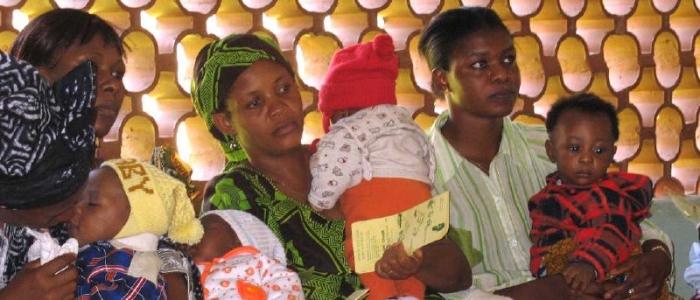"Combating the violence that denies women their fundamental human rights, and the structural gender imbalances reinforcing it, is a priority for the trade union movement," said ITUC General Secretary General Sharan Burrow.
The 2nd ITUC Congress, in Vancouver in June, committed, through its resolution on gender equality, to promote an intense campaign to fight violence against women, by linking up with the UN Women - UNIFEM campaign on this issue, for example, and calling on its affiliates to mobilise today. Trade unions in Colombia, Honduras, Ecuador, Dominican Republic, Brazil, Mauritania, Democratic Republic of Congo, Spain, India, Sri Lanka, Nepal and many other countries are staging various activities. The two key objectives of the mobilisation are to raise awareness within the organisations themselves and to draw the authorities’ attention to this issue. On the programme for this 25 November are demonstrations to press for the ratification and application of legal instruments, the drawing up of trade union action plans to combat violence, protection for women victims of violence in the private sphere, competitions, theatre performances and campaign launches backed by videos, posters, pamphlets, etc.
In the world of work, sexual harassment is a scourge affecting women in huge numbers, especially young new recruits. Women working in the informal economy, in rights-free zones, are the most vulnerable to extreme forms of violence, together with women in precarious employment, such as domestic workers, an undervalued, widely exploited group, generally unprotected by labour laws.
Similarly, women migrant workers are another group highly exposed to violence, above all those without a good grasp of the language in the host country and no knowledge of its laws and institutions.
Many women are also confronted with insults, threats and other forms of moral harassment in the workplace.
The ITUC insists therefore on the need to place the issue of violence on the agenda of social dialogue with employers. "It is only by working together with employers that we will be able to eradicate violence in the workplace," said Sharan Burrow.
Finally, the plight of women in the armed conflicts raging around the world cannot be ignored. In October of this year, the ITUC took an active part in the third edition of the World March of Women (WMW), held in Bukavu, in eastern Democratic Republic of Congo (DRC), a region plagued by collective rape on a massive scale and other extreme forms of violence against women. "The degree of violence endured by women in eastern Congo is unimaginably cruel, a horror that the international community must bring to an end," insists Sharan Burrow.
For more information on the international trade union presence at the 3rd WMW in Bukavu (DRC)
, as well the interview with Dr Mukwege of Panzi hospital in Bukavu


